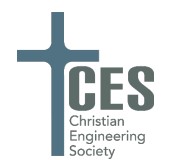Document Type
Paper
Abstract
Increasingly, student-centered, collaborative learning is advocated in the pedagogical literature. Here, the epistemological underpinnings of these approaches are examined. Where these practices are established on principles contrary to God’s revelation, how God’s design for the building up of the church could inform collaborative learning and differentiated instruction is explored.
Specifically, many modern pedagogical techniques arise from constructivist epistemology, which acknowledges not an objective truth but a cognitive failures and successes. Practitioners of these methods are not necessarily complicit in adopting this worldview. Nevertheless, repositioning pedagogical techniques observed to be helpful in practice within a biblical worldview is necessary for discerning which methods are in accordance with God’s design and how to motivate Christian students to engage in them to the glory of God. Contrary to the constructivist view of the truth, God has revealed what is true in his Word, and he has ordained instruction in truth in the church to occur through public settings, interpersonal engagement, and reading the Word in the Spirit.
Here, I consider one example of how biblical principles may inform the positioning, refinement, or motivation for collaborative learning and differentiated instruction in a Christian engineering classroom. Specifically, 1 Thessalonians 5:14 can serve as an organizing framework for how Christians may wisely speak the truth in love to one another. Furthermore, I describe how I have designed “Introduction to Fluid Mechanics”, a mid-level course, to provide opportunities for both the mature students to help the struggling and for me as an instructor to have sufficient engagement with students in a 25–50-person course to gain insight into the motivational issues or capacity challenges that other students may have. Opportunities to adapt this approach to a Christian classroom are envisioned.
Creative Commons License

This work is licensed under a Creative Commons Attribution-Noncommercial-No Derivative Works 4.0 License.
Copyright
© 2024 Shannon L. Capps. All rights reserved.
Collaborative Learning and Differentiated Instruction: Applying 1 Thessalonians 5:14 in the Classroom
Increasingly, student-centered, collaborative learning is advocated in the pedagogical literature. Here, the epistemological underpinnings of these approaches are examined. Where these practices are established on principles contrary to God’s revelation, how God’s design for the building up of the church could inform collaborative learning and differentiated instruction is explored.
Specifically, many modern pedagogical techniques arise from constructivist epistemology, which acknowledges not an objective truth but a cognitive failures and successes. Practitioners of these methods are not necessarily complicit in adopting this worldview. Nevertheless, repositioning pedagogical techniques observed to be helpful in practice within a biblical worldview is necessary for discerning which methods are in accordance with God’s design and how to motivate Christian students to engage in them to the glory of God. Contrary to the constructivist view of the truth, God has revealed what is true in his Word, and he has ordained instruction in truth in the church to occur through public settings, interpersonal engagement, and reading the Word in the Spirit.
Here, I consider one example of how biblical principles may inform the positioning, refinement, or motivation for collaborative learning and differentiated instruction in a Christian engineering classroom. Specifically, 1 Thessalonians 5:14 can serve as an organizing framework for how Christians may wisely speak the truth in love to one another. Furthermore, I describe how I have designed “Introduction to Fluid Mechanics”, a mid-level course, to provide opportunities for both the mature students to help the struggling and for me as an instructor to have sufficient engagement with students in a 25–50-person course to gain insight into the motivational issues or capacity challenges that other students may have. Opportunities to adapt this approach to a Christian classroom are envisioned.

